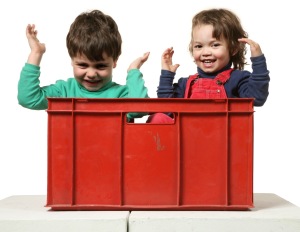 I learned about Kelvin Doe, a remarkable 15-year old from Sierra Leone, on the Internet. A short film shows Kelvin converting broken electronic parts he scavenged from the trash into valuable items such as portable batteries for lights (intermittent electricity leaves his village without power much of the time.) He even fashioned a homemade generator to power an FM transmitter he built from local scraps. Broadcasting as “DJ Focus,” Kelvin uplifts and inspires his community with music and his contagious joie de vivre.
I learned about Kelvin Doe, a remarkable 15-year old from Sierra Leone, on the Internet. A short film shows Kelvin converting broken electronic parts he scavenged from the trash into valuable items such as portable batteries for lights (intermittent electricity leaves his village without power much of the time.) He even fashioned a homemade generator to power an FM transmitter he built from local scraps. Broadcasting as “DJ Focus,” Kelvin uplifts and inspires his community with music and his contagious joie de vivre.
Kelvin’s story got me wondering: How can we instill such passion, ingenuity, and generosity of spirit in our children? Admittedly, no two children are alike and we can’t recreate the unique blend of genes, disposition, and upbringing that produced Kelvin’s unbridled enthusiasm and aptitude for electronics. Yet, I believe we can guide our children to discover a joyful zest for life while instilling a readiness to contribute to the greater good.
As parents, we have the greatest influence on how our children view the world and their role in it. Readying our children to become caring, responsible global citizens and live meaningful, satisfying, and joyful lives starts now…
1. Cultivate Creativity and a Thirst for Learning: Children come to life loaded with curiosity. Creative play fuels their innate ingenuity and imagination. Studies confirm the importance of play for healthy social, emotional, and intellectual development, so keep pretending to eat those delicious mud pies your child offers and drink the imaginary tea with gusto. Children learn from experience so let them explore, experiment, and express through nature, art, music, cooking, storytelling, drama, etc. You may not be raising a budding Mozart or Monet, but, hopefully, a happy, well-adjusted adult is in the making.
2. Cultivate Kindness, Compassion, and Respect: Empathy, the ability to think and feel beyond our own needs and wants, takes practice. Pets and story characters, particularly animals, offer young children a window into the experience of someone else. Tolerance and compassion grow fr om understanding and respecting different perspectives. Real-time experience teaches best, so remember to role-model respectful communication and practice frequent acts of kindness at home and abroad…
om understanding and respecting different perspectives. Real-time experience teaches best, so remember to role-model respectful communication and practice frequent acts of kindness at home and abroad…
3. Cultivate Independent Decision-Making and Problem-Solving Skills: Whenever possible, take a few breaths and let your children solve problems for themselves. Although it is tempting to provide solutions, letting children overcome challenges strengthens their resourcefulness and resolve and produces a sense of accomplishment. Similarly, allowing children to make insignificant, relatively low risk decisions early on prepares them to make more important decisions later on. Within your window of tolerance, leave some unimportant decisions to your child’s discretion such as which vegetables to cook for dinner or which Pandora station to listen to. Placing trust in your child reinforces core values such as empathy and respect and fosters independent thinking, the best antidote to peer pressure.
4. Cultivate Belonging: We’re biologically wired to connect. Caring relationships contribute significantly to health, happiness, and longevity. There’s no such thing as normal, so follow whatever recipe for meaningful connection fits your family’s lifestyle. If your extended family lives far away, find your peeps and arrange regular get-togethers. Adopt surrogate aunties, uncles, and grandparents closer to home. Maintain loving friendships that support you and your family life. You and your children reap the benefits when you thrive socially and  emotionally.
emotionally.
5. Cultivate Giving: My teen-aged sons still make homemade cards and gifts with great care and thoughtfulness. Instead of buying gifts, children can make coupons for special services such as a shoulder massage or extra cooking or cleaning duties. Food and toy drives for less fortunate children or chores for elderly neighbors make giving a heartfelt endeavor.
6. Cultivate Value, Responsibility, and Service: Start involving children in chores and projects as early as possible. That way you can establish a whistle-while-you-work attitude instead of resorting to a guilt-fueled should-fest to get chores done. In the early stages, focus on effort v. outcome to transmit important messages such as, “Your contribution matters,” and, “Your efforts make a difference.” Research tells us that children are more likely to cooperate with requests from someone they feel connected to. Make sure to provide appreciation for “being” independent from appreciation for “doing.” If possible, get involved in community projects where people work together for a common purpose.
 7. Cultivate Gratitude and Appreciation: The results are in: practicing gratitude makes us healthier, happier, and more prone to helping others. So indoctrinate your children with an attitude of gratitude: In the morning, after school, at the dinner table, before bed. No matter what the circumstances, share the discovery that there is always something to be grateful for.
7. Cultivate Gratitude and Appreciation: The results are in: practicing gratitude makes us healthier, happier, and more prone to helping others. So indoctrinate your children with an attitude of gratitude: In the morning, after school, at the dinner table, before bed. No matter what the circumstances, share the discovery that there is always something to be grateful for.
The best way to demonstrate to your children how to live happy, healthy, and productive lives is to lead by example. Your actions today will inform their choices tomorrow…
